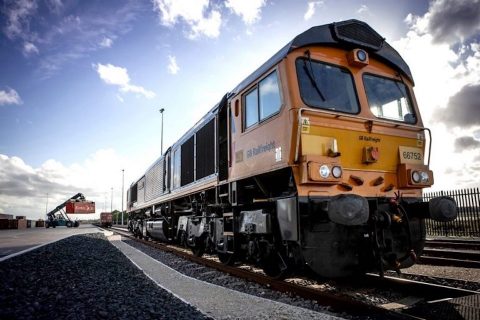HS2 pause means more than lost business for rail freight

The UK government has decided to slow down the building of the HS2 project. That pause, covering significant parts of the project, will inevitably have an impact on rail freight operations. The company formed to build the high-speed railway between London and Birmingham and beyond, HS2 Limited, has already said its committed to using rail freight for the bulk of the heavy lifting. However, the descoping of the project will inevitably mean fewer trains running day to day.
Do you want to read the full article?
Thank you for visiting RailFreight.com. Become a member of RailFreight Premium and get full access to all our premium content.
Are you already a member?
Having problems logging in? Call +31(0)10 280 1000 or send an email to customerdesk@promedia.nl.




